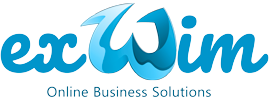Why a Project Management App is the Key to Successful Project Completion
Effective project management is crucial in ensuring the success of any project, regardless of its size or complexity. With so many moving parts to keep track of, it can be a daunting task to ensure that everything is running smoothly and on schedule. This is where project management software comes in. A project management app can be the key to streamlining and simplifying the process, making it easier to keep track of progress, deadlines, and resources. With features like task management, time tracking, and team collaboration tools, a project management app can help you stay organized and on top of your project from start to finish. In this article, we will explore why a project management app is essential to successful project completion and how it can benefit your team and your business. Read on to discover how a project management app can help you take your project management skills to the next level!
The Importance of Project Management for Successful Project Completion
Project management is a critical aspect of any project, as it ensures that all tasks are completed on time and within budget. It involves planning, organizing, and controlling resources to achieve specific goals and objectives. Without proper project management, a project can quickly become disorganized and chaotic, leading to missed deadlines, budget overruns, and poor-quality work.
Project management involves several key processes, including project planning, resource allocation, task management, risk management, and team collaboration. Each of these processes is essential to ensuring that a project is completed successfully. Project planning involves defining the project scope, setting objectives, and creating a project schedule. Resource allocation involves identifying the resources needed to complete the project, such as personnel, equipment, and materials. Task management involves assigning tasks to team members and tracking progress. Risk management involves identifying potential risks and creating contingency plans to mitigate them. Team collaboration involves promoting communication and collaboration among team members to ensure that everyone is working toward the same goals.
Benefits of Using a Project Management App
Project management apps offer several benefits over traditional project management methods. One of the most significant benefits is that they allow for greater efficiency and productivity. With a project management app, you can easily track progress, assign tasks, and communicate with team members, all in one place. This can save you time and reduce the risk of errors or miscommunications.
Another benefit of using a project management app is that it can provide greater visibility into the project. With real-time updates and notifications, you can quickly identify any issues or delays and take corrective action before they become major problems. This can help you stay on top of the project schedule and ensure that everything is running smoothly.
Project management apps also offer greater flexibility and scalability. Whether you are working on a small project with just a few team members or a large project with multiple teams and stakeholders, a project management app can accommodate your needs. You can easily add or remove team members, adjust task assignments, and reassign resources as needed.
Must-Have Features of a Project Management App
When choosing a project management app, there are several features that you should look for. These include:
Task Management
Task management is one of the most critical features of a project management app. It allows you to assign tasks to team members, set deadlines, and track progress. Look for a project management app that offers a clear and intuitive interface for task management.
Time Tracking
Time tracking is another essential feature of a project management app. It allows you to track the time spent on each task, which can help you identify areas where you can improve efficiency. Look for a project management app that offers robust time-tracking capabilities, such as the ability to track time automatically or manually.
Team Collaboration
Team collaboration is crucial to the success of any project. Look for a project management app that offers robust collaboration tools, such as messaging, file sharing, and commenting. These tools can help you promote communication and collaboration among team members.
Reporting and Analytics
Reporting and analytics are essential for measuring the success of your project. Look for a project management app that offers robust reporting and analytics capabilities, such as the ability to generate reports on project progress, resource allocation, and budget tracking.
Types of Project Management Apps Available in the Market
There are several types of project management apps available in the market, each with its own strengths and weaknesses. Some of the most common types include:
Traditional Project Management Apps
Traditional project management apps are designed for large, complex projects with multiple teams and stakeholders. They typically offer robust features for task management, resource allocation, and team collaboration.
Agile Project Management Apps
Agile project management apps are designed for projects that require flexibility and adaptability. They typically offer features for sprint planning, backlog management, and team collaboration.
Kanban Project Management Apps
Kanban project management apps are designed for projects that require a visual workflow. They typically offer features for creating and managing Kanban boards, which can help you visualize task progress and identify bottlenecks.
How to Choose the Right Project Management App for Your Team
When choosing a project management app, there are several factors to consider. These include:
Project Size and Complexity
Consider the size and complexity of your project when choosing a project management app. If you are working on a large, complex project, you may need a traditional project management app with robust features for task management and resource allocation. If you are working on a smaller, more flexible project, you may prefer an Agile or Kanban project management app.
Team Size and Composition
Consider the size and composition of your team when choosing a project management app. If you have a large team with multiple departments and stakeholders, you may need a project management app with robust collaboration features. If you have a smaller team, you may prefer a simpler project management app with fewer features.
Budget
Consider your budget when choosing a project management app. Some project management apps can be expensive, especially if you need to purchase licenses for multiple users. Look for a project management app that offers a pricing structure that fits your budget.
Implementing a Project Management App in Your Team
Implementing a project management app in your team can be a significant undertaking, but it can also be highly beneficial. To implement a project management app successfully, follow these steps:
Define Your Goals and Objectives
Before implementing a project management app, define your goals and objectives. What do you hope to achieve by using a project management app? What specific features do you need to meet your goals?
Choose Your App
Choose a project management app that meets your needs and fits your budget. Consider the size and complexity of your project, the size and composition of your team, and your budget when choosing an app.
Train Your Team
Train your team on how to use the project management app. Provide clear instructions and guidelines for using the app, and encourage team members to ask questions if they need help.
Monitor Progress and Make Adjustments
Monitor progress regularly and make adjustments as needed. Use the reporting and analytics features of the project management app to track progress, identify issues, and make improvements.
Measuring the Success of Using a Project Management App
To measure the success of using a project management app, consider the following metrics:
Time to Completion
Measure the time it takes to complete the project with the project management app compared to previous projects completed without the app.
Budget
Measure the budget for the project with the project management app compared to previous projects completed without the app.
Quality of Work
Measure the quality of work produced with the project management app compared to previous projects completed without the app.
Examples of Successful Projects Completed Using a Project Management App
Several successful projects have been completed using project management apps. One example is the construction of the Burj Khalifa, the tallest building in the world. The project used a project management app to coordinate the efforts of more than 12,000 workers and to manage the construction of the building’s complex structure.
Another example is the development of the IBM System/360, a groundbreaking computer system developed in the 1960s. The project used a project management app to coordinate the efforts of more than 1,000 engineers and to manage the development of the system’s hardware and software.
Conclusion
In conclusion, a project management app can be the key to successful project completion. It offers several benefits over traditional project management methods, including greater efficiency, productivity, and flexibility. When choosing a project management app, consider the size and complexity of your project, the size and composition of your team, and your budget. To implement a project management app successfully, define your goals and objectives, choose the right app, train your team, and monitor progress regularly. With a project management app, you can take your project management skills to the next level and ensure the success of your projects.


